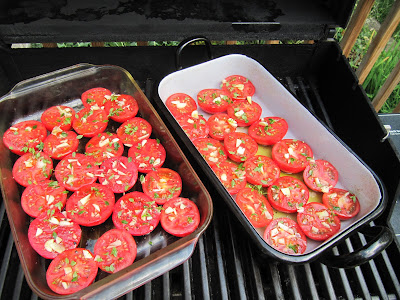By sheer coincidence the books selected for my September book groups were similar in inspiration and theme. Both were fiction based on the life of an actual person who left a letter or diary about her past and had a link with a famous institution. Both had the historical subjugation and lack of choices for women as an important factor in the character's story. Both included deaths from consumption (tuberculosis). Both had romantic aspects with relationships thwarted and moving forward. How is it that I tolerated one book and loved the other?
The words, metaphor, passion, suspense, emotion, deep description... I can't pinpoint what it is that some authors have and others don't that makes the difference but I sure
know it when I read it.

The book that I got through reluctantly was
Clara and Mr. Tiffany by Susan Vreeland. It described the life of Clara who ran the women's design department at Louis Comfort Tiffany's glass studio. While she loved her artistic work creating naturalistic mosaic and lamp designs and supporting and teaching young female workers, she was thwarted by her times. Women in her department were forbidden to marry by company policy, and eventually her department size was limited to appease male-only unions.
But the prose was plodding, the relationships seemed hollow, the emotions were only on the surface. When reading, I keep a journal close by to write down meaningful or especially beautiful passages. I don't think I copied down any from this book. One of her suitors told Clara that he wanted to give her a life of "excitement and adventure." But it never came, in the relationship or the book. There was a scene in the book where Clara visited the filthy immigrant tenement of one of her apprentices. How could this not be moving and descriptive? But somehow it wasn't.
This book could have explored the sacrifices made for love and art. It did a fair job of identifying the differences between Victorian fussiness and morals and a more modern aesthetic, but the exploration was shallow. I wanted Clara to challenge the marriage policy, to break out of her confines, to live fully. She thought about how things might change, but never made the effort to change them, even in her own mind. About 2 weeks after finishing this book, very little stays with me. We'll have a pleasant book group discussion about it and move on.

Caleb's Crossing by Geraldine Brooks, however, will be a book that stays with me for a long time, and I will seek out other works by this author. She weaves a fictional tale told by a religious, colonial woman from Nantucket Island in the mid-1600s. The historical link that inspired the story is an actual letter in Latin written by the first native American to graduate from Harvard College. But from this scrap of history she weaves a compelling, emotional and beautiful novel.
The main character (Bethia) struggles with the demands of her society and her God. But she is pulled strongly by the freedom, energy, and passion of the "savages" in her midst. In secret she befriends a native boy, and they teach each other a new language and a new way to live. Against all odds, they are part of an effort to bridge the cultural divide that separated the natives and English colonists of the era. We know the tragic historical outcome of these struggles, and this book encapsulates the story in all its complexity.
Death, illness, hunger and sacrifice are ever present for the characters. Sometimes their religious beliefs comfort them under these conditions and sometimes just the opposite. The contrast of racism and tolerance is stark. Some English in the story repeatedly doubt the "savages" ability to learn. Yet it is pointed out that they so admire and closely study the pagan Greeks and Romans.
In one passage, Bethia is "struck, as always, that the heathen poet [Homer] from long ago should know so much of the human heart, and how little that heart changes, though great cities fall and new dispensations sweep away the old and pagan creeds." This is in direct contrast with
Clara and Mr. Tiffany where the characters believe that a new time is dawning because of the coming of electric light and the automobile. Yes, those things cause changes, but the core conflicts of religious struggle, of corporation vs. labor, of racism and tolerance remain.
The language and emotion are deep and beautiful on every page of
Caleb's Crossing.
A description of Caleb:
"He had exchanged the restless, flaring energy of his boyhood for a mannerly restraint. But the sense was of fires banked, not extinguished."
When they were young, Caleb gave Bethia (which means servant) an Indian name Storm Eyes. At one point, she yearns, "I wanted to be Storm Eyes again, leaving dutiful Bethia carelessly behind me, shrugging her off, like a cloak left crumpled on the sand."
I can see so much in these short passages. The words are so descriptive and each one lends deeper meaning. Read this book!
And please comment if you can describe further what kind of literature you love and what makes it great.


 My mom had her first s'more this evening. She likes to char her marshmallows.
My mom had her first s'more this evening. She likes to char her marshmallows.
 YUM!
YUM!














